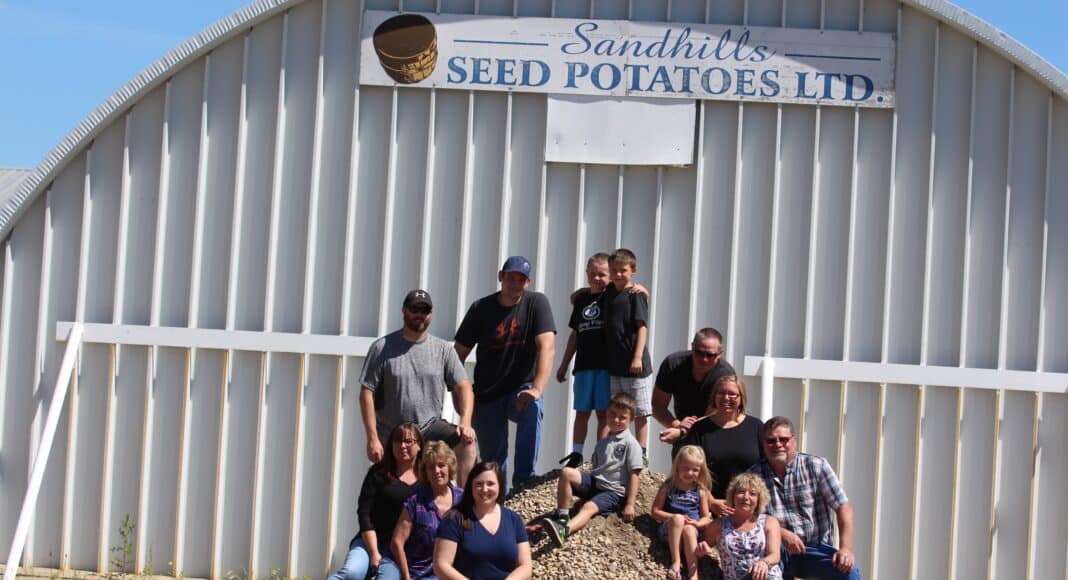On our farm, Sandhills Seed Potatoes at Spruce Grove, Alta., we grow seed potatoes for the processing potato growers — both fry and chip. We do seed production from the nuclear stage up to E3, sometimes even E4. We grow nine different types of seed potatoes that we ship to southern Alberta, Manitoba, Washington and Idaho.
We don’t have irrigation in our area, so we rely on our soil for everything. You always look after the soil, but there’s other things that you can do to keep it top-notch and make it better. So that’s how we got into regenerative agriculture.
We’ve been doing zero tillage on our farm for quite some time, and then we make sure to not remove any straw from the field. I’ve also started raising a small herd of cattle, so we’re now spreading their manure on our fields. We work with a neighbour who grain farms on our land in the years we don’t grow spuds on them — he also subcontracts a bit of my seed potato production.
As we grow seed potatoes for the processing industry, we’ve found ourselves working closely with McCain Foods. After they made their regen ag pledge two years ago they started working with us on incorporating more regen ag practices into our seed growing.
One of our main regen ag focuses has been growing seed potato varieties that need less fertilizer and moisture. The three varieties are Dakota Russet, Caribou Russet and King Russet — all of which McCain’s uses to make their fries. We’ve also added a few varieties that Frito Lay uses for their chip production.
We still do grow Russet Burbank, as the market is there, but we’re moving out of growing it. Russet Burbank requires a long season to grow, so varieties like it and Clearwater Russet, won’t be on our farm in the future. We’re going to work ourselves out of growing those seed varieties and move into growing the low fertilizer and moisture varieties.
It’s important that we grow these seed potato varieties as it’s not just ourselves who want to take care of our soils, but also the potato growers we sell seed to. The growers we ship to are asking for low input varieties, so it’s important we sell them the varieties they want.
Since we’ve started growing more of these low input varieties and using more regen ag practices on our farm, we’ve noticed our soil organic matter levels have been maintained or increased. We’re very fortunate to have good soil in our area with high organic matter and three feet of topsoil. And while we’re not seeing any fast results, our soil organic matter is slowly improving and growing.
There are other regen ag practices we’re considering. We’d like to try growing cover crops but with such a short window to plant them, we’re often taking potatoes off and then less than a month later our fields are covered in snow — it makes it a challenge. We’re still looking into it and think we may be able to plant some clovers and alfalfa.
We only have one shot at this and if our soil is depleted, then we’re not going to be able to grow our crops. For seed potatoes, we need good clean soil without diseases in it. We need our seed potatoes to be disease free and the soil is where it starts.











